It’s widely understood that early childhood development lays the foundations for the rest of a child’s life – from forming relationships to emotional boundaries to behaviour. It’s when the human brain is at its most receptive, and early experiences have a significant impact on the formation of neurological connections and brain functioning.
What are child development stages?
Child development stages are used as an assessment and tracking tool to follow a child’s developmental progress from birth until age five. Each stage contains key development milestones – spanning a variety of areas, such as cognitive development, physical development, emotional development and language development – that help to broadly evaluate whether or not a child is achieving the expected actions or targets for their age range.
Gaining an understanding of the stages is extremely useful for early years educators, teachers, parents and carers, and anyone involved in supporting young children to learn and develop effectively. The stages are important as they highlight areas in which a child may require more support if they are to achieve their best individual outcomes. Despite this, research indicates that only 25% of parents recognise the importance of the first five years, and teacher training often fails to cover early years in sufficient depth.
There are five child development stages:
- Newborn
- Infant
- Toddler
- Pre-school
- School-age
Let’s look at each stage – and its associated developmental milestones in relation to physical skills, cognitive skills, emotional skills and social skills – in more detail, as well as the developmental disabilities that can be evidenced.
Newborn (0-3 months)
A child in their first month will exhibit automatic responses to external stimuli.
Key milestones for newborn development stage:
- Physical: Moves arms and legs, puts hands to mouth, opens and closes fists, sucks and swallows.
- Cognitive: Recognises the voice of caregivers, visually tracks toys, remains focused on a person or toy.
- Emotional: Looks at the person who is talking to them, calms when rocked or soothed, can be comforted by caregiver’s touch, generally happy when not hungry or tired.
- Social: Smiles, uses different cries for different needs, makes eye contact, enjoys interaction with others.
Developmental disabilities in the newborn age group can include spina bifida, fetal alcohol syndrome, and genetic disorders.
Infant (3-12 months)
Children in the infancy stage rapidly develop new abilities during the first year.
Key milestones for infant development stage:
- Physical: Crawls, sits unsupported for several minutes, stands unaided, has fully developed vision, picks up objects, put objects to mouth, rolls from stomach to back, stacks toys, puts objects into containers, uses hands to play with feet, tries to feed themselves, eats foods of different textures.
- Cognitive: Recognises name, follows basic instructions, plays more games, understands some everyday words, is aware of music, recognises object permanence (a concept developed by Jean Piaget) and what objects are used for, uses objects correctly, turns in the direction of voices.
- Emotional: Has a range of movements and facial expressions, recognises familiar faces, shows affection to familiar people, laugh and cries to display emotion, enjoys daily/routine activities such as bathtime, displays likes and dislikes, shows distress at others’ upset, may show separation anxiety, enjoys giving and receiving hugs.
- Social: Raises arms to be picked up, follows commands and gestures, understands the word ‘no’, communicates with pointing and gestures, babbles, coos and uses different sounds to attract attention, plays more games – such as peek-a-boo, listens to voices even when people are not in view.
Slower-than-expected development in infancy may indicate Down’s syndrome, cerebral palsy or other developmental disabilities.
Toddler (1-3 years)
Greater communicative and physical abilities allow toddlers to begin exploring the world in more depth.
Key milestones for toddler development stage:
- Physical: Walks, has greater balance, eats foods with other family members with less mess, removes own socks, greater confidence playing outside, balances on one leg, makes marks on paper with crayons, turns the pages of books, climbs stairs and items of furniture, spills less when drinking, throws and kicks balls, models shapes from dough, can dress self (but might have issues with fastenings), uses potty or toilet assisted/unassisted.
- Cognitive: Says first word, points to body parts when directed, follows simple instructions, says up to 50 words and uses short sentences, enjoys messy play, points to people and objects when directed, asks question, knows own name, puts items away, scribbles and draws lines and circles, matches shapes and sizes, understands two-part requests.
- Emotional: Recognises self in mirror, likes different textures, throws objects to demonstrate dislike, articulates feelings and likes/dislikes, uses gestures to attract attention, has tantrums as feelings are experienced.
- Social: Has favourites, develops larger vocabulary, interested in playing with others, understands up to 200 words, learns to share, copies caregivers’ activities and gestures.
Screening for autism, if a caregiver or healthcare professional has any concerns related to a child’s development in the toddler age range, can be conducted at 18-24 months.
Pre-school (3-4 years)
At this age, children will generally ask many questions as they discover and explore the world around them.
Key milestones for preschool development stage:
- Physical: Runs, uses wheeled toys such as tricycles, climbs stairs with greater confidence, uses hands with greater accuracy, uses knife and fork, uses toilet with greater confidence.
- Cognitive: Counts from 1-10, follows longer sets of instructions, focuses on a single activity despite distractions, matches colours, memory is improved.
- Emotional: Knows own age, talks about own feelings, is at ease in absence of parents/carers, chooses own clothes.
- Social: Plays with different toys, uses sentences, plays happily alone or with others, participates in group activities.
School-age (4-5 years)
By school-age, children are generally growing more confident, independent and capable.
Key milestones for school-age development stage:
- Physical: Fine motor skills can be used for tasks such as threading beads and using scissors, drawing skills develop, gross motor skills are evident in ball skills and balance.
- Cognitive: Uses more complex sentences, sorts items into categories, familiar with routines, reading comprehension is more advanced, understands right and wrong.
- Emotional: Understands straightforward reasoning, develops imagination through play, understands jokes and is developing their own sense of humour, can settle themselves to sleep.
- Social: Enjoys making friends, starts conversations, shows interest in others.
If a school-age child is experiencing difficulties with maintaining focus and remaining undistracted, it could be a sign of ADHD.
What happens if a child is not meeting developmental milestones?
Children grow, learn and develop at their own pace – and what some children are able to do will not be the same for others. However, when key development targets are unmet it can be indicative of underlying factors that are affecting a child’s progress; for example, they may be presenting with a special education need (SEN). It’s important to note that this is not always the case, and developmental delays can be caused by a wide range of factors.
If you’re worried about a child’s growth or development, it’s important to speak to a doctor or paediatrician in case early intervention is required, for example physical therapy, speech therapy or occupational therapy.
Use knowledge of early childhood development to support children as they grow
Learn how to support the diverse needs of children and young people with North Wales Management School’s online MSc Educational Psychology programme.
If you’re ready to progress into senior roles in educational leadership or want to enhance your current practice, our flexible course is the ideal choice. As well as gaining detailed insight into the role of an educational psychologist, you’ll explore the psychological underpinnings of child development and educational practice. Your learning will include forensic psychology, baby development through to adolescent development, additional learning needs and disabilities, clinical and psychometric assessments, behaviour disorders and more.




